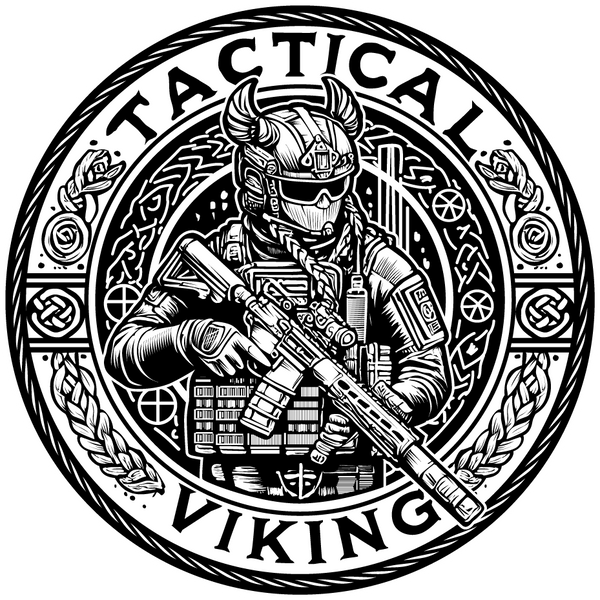
Shadows of Guadalcanal: A Turning Point in the Pacific
Share
Shadows of Guadalcanal: A Turning Point in the Pacific
A Jungle Awakening: August 7, 1942
The morning of August 7, 1942, cracked open with thunder, not from the sky, but from naval guns and carrier-launched aircraft unleashing hell onto a quiet strip of island in the South Pacific. This was Guadalcanal, and what began that day would ignite a firestorm lasting six months.
The campaign wasn’t just a skirmish or a strategy. It was a pivot point. It was the day the United States stopped retreating and started advancing. It was the day the jungle whispered a new name into military legacy, the Shadows of Guadalcanal.
The First Offensive and the Warrior's Trial
For months after Pearl Harbor, the U.S. had been on the defensive. But Guadalcanal was different. It was the first major ground offensive against Japan. The mission: deny the Japanese an airfield that threatened Allied supply lines, and take the fight to them.
The men who landed... primarily from the 1st Marine Division... were young, undertrained, and ill-equipped for what waited. The jungle wasn’t just terrain; it was the enemy. Diseases like malaria, the lack of clean water, brutal humidity, and swarms of insects tore at them day and night.
And still, they held.
In the Shadows of Guadalcanal, warriors weren't forged in parades, they were shaped in darkness, in silence, in starvation, in the sweat-drenched nights between bombardments.
When the Sun Set, the Jungle Came Alive
Night fighting became the norm. The Japanese, masters of infiltration, attacked under cover of night with bayonets, whispers, and sudden screams. Marines learned to sleep lightly, rifle in hand, boots on. They buried comrades with no time to mourn.
It wasn’t just bullets that tested them. It was the mental toll. Isolation, fear, and hunger gnawed just as sharp as enemy steel. But they stood. And more importantly, they adapted.
That’s what makes the Shadows of Guadalcanal a lasting symbol for modern warriors: it was less about overwhelming firepower and more about enduring when every part of you screams to quit.
Valor Without Applause
There were no grand speeches. No clear victories. Only inches gained, bodies counted, and blood-soaked ground traded back and forth.
The enemy didn’t break easily. Neither did the men who fought them.
The naval battles that surrounded the island, including Savo Island and Ironbottom Sound, claimed countless lives. The skies above Guadalcanal turned into aerial graveyards. But the ground game was personal... close quarters, face-to-face, steel-to-steel.
From Bloody Ridge to Edson’s Hill, Marines and soldiers etched themselves into military history not with medals, but with the will to survive, push forward, and finish the job.
Why Shadows of Guadalcanal Still Matter to Patriots Today
For veterans, active duty, and every man or woman who’s worn the uniform, Guadalcanal is a ghost that still whispers.
It’s the reminder that true patriotism isn’t loud—it’s consistent. It’s the grind. The suffering. The holding of the line when no one else will. It’s the grim acceptance that freedom isn’t free, and never has been.
The Shadows of Guadalcanal remind us that the soul of the warrior isn’t built in victory, it’s built in hardship.
In today’s world, where so much valor goes unseen, and so many brothers and sisters come home to fight different battles in silence, this history matters.
Because it teaches one unshakable truth: You are not forgotten. And you are not alone.
Tactical Viking: Honoring the Shadows That Came Before Us
At Tactical Viking, we don't just wear designs, we wear stories. From the jungles of the Pacific to the streets of Fallujah, the legacy of grit continues.
On August 7th, we honor the Shadows of Guadalcanal.
We remember the exhausted Marines who held the perimeter.
We remember the corpsmen who ran through mortar fire with nothing but a medkit and a prayer.
We remember the sailors who went down in black waters so their brothers could hold the beach.
We ride. We gather. We donate. Because as veterans and patriots, we know that one is too many.
Final Fire in the Jungle
The Guadalcanal Campaign ended in February 1943. Six months. 7,000 Americans dead. Twice that wounded. A scar across history... but also a proof of concept: the U.S. would not back down.
And neither should we.
Let the Shadows of Guadalcanal be more than a chapter in a history book. Let it be your fuel. Your fire. Your reason to stand when others sit. To speak when others go silent. To keep going when the trail gets dark.
Because if they could do it in the jungle, we can do it here, now, together.
